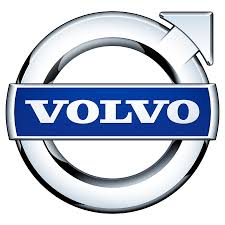
Shares of Swedish truck maker Volvo went for a down spin after the auto maker estimated that there would be a decline for its vehicles – especially trucks, in the important markets of Europe and China. Investors engaged in selling of the company stocks on fears and assumptions that demand in these two critical markets has reached a peak
The auto maker also did not provide any details of the possible price that it would have to cough-up for settling an emission issue with some of its trucks and busses that it sells in North America and in Europe which came to light in the week earlier. That news had seen its shares drop by 4.8 per cent despite the company reporting better than expected reports for the third quarter.
There would likely be a drop in demand for its vehicles in China by about 13 percent to 970,000 units next year while there would be a possible drop of 5 per cent in demand in Europe to 300,000 units in the same period, forecast Volvo, which is also engaged in the manufacturing of construction equipment and engines.
The company also said that it expects demand for construction equipment in China could drop by 10 per cent next year because of a flat construction market there. These forecasts were made by Volvo following reports of a slowdown in the Chinese economy in the third quarter to a level seen last in 2009.
The trade spat between China and the United States was partly blamed for the Chinese slowdown by the company CEO Martin Lundstedt but also added that the truck clients had also become hesitant to invest because of new emission legislation. The market had exhibited strong performance for a number of years.
“Generally speaking there is a certain worry about what will happen when it comes to tariffs and different other types of uncertainty in the geopolitical and macroeconomic climate,” he told the media.
“But still I think the overwhelming part of our customers’ sentiment is really good activity in different markets... So what we see, that is not really a strong trend of a downturn.”
In recent years, the truck segment has seen strong growth because truck buyers felt the need to upgrade their fleet after they had stopped investing after the global financial meltdown in 2008-09. But there has been a bottleneck because of the increase in demand in recent years resulting in Volvo to counter higher raw material and labor costs.
Supply chain hold-ups were expected to persist in North America, said Volvo.
China’s Geely Holding has a 15 percent stake in the truck maker.
The company also said that there could be some “material” costs for the company because some of its engines of trucks in North America were creating exhaust that was more than the stipulated limits for toxic nitrogen oxide emissions in the market because of a faster than anticipated wearing down of its catalytic converters.
(Source:www.reuters.com)
The auto maker also did not provide any details of the possible price that it would have to cough-up for settling an emission issue with some of its trucks and busses that it sells in North America and in Europe which came to light in the week earlier. That news had seen its shares drop by 4.8 per cent despite the company reporting better than expected reports for the third quarter.
There would likely be a drop in demand for its vehicles in China by about 13 percent to 970,000 units next year while there would be a possible drop of 5 per cent in demand in Europe to 300,000 units in the same period, forecast Volvo, which is also engaged in the manufacturing of construction equipment and engines.
The company also said that it expects demand for construction equipment in China could drop by 10 per cent next year because of a flat construction market there. These forecasts were made by Volvo following reports of a slowdown in the Chinese economy in the third quarter to a level seen last in 2009.
The trade spat between China and the United States was partly blamed for the Chinese slowdown by the company CEO Martin Lundstedt but also added that the truck clients had also become hesitant to invest because of new emission legislation. The market had exhibited strong performance for a number of years.
“Generally speaking there is a certain worry about what will happen when it comes to tariffs and different other types of uncertainty in the geopolitical and macroeconomic climate,” he told the media.
“But still I think the overwhelming part of our customers’ sentiment is really good activity in different markets... So what we see, that is not really a strong trend of a downturn.”
In recent years, the truck segment has seen strong growth because truck buyers felt the need to upgrade their fleet after they had stopped investing after the global financial meltdown in 2008-09. But there has been a bottleneck because of the increase in demand in recent years resulting in Volvo to counter higher raw material and labor costs.
Supply chain hold-ups were expected to persist in North America, said Volvo.
China’s Geely Holding has a 15 percent stake in the truck maker.
The company also said that there could be some “material” costs for the company because some of its engines of trucks in North America were creating exhaust that was more than the stipulated limits for toxic nitrogen oxide emissions in the market because of a faster than anticipated wearing down of its catalytic converters.
(Source:www.reuters.com)





